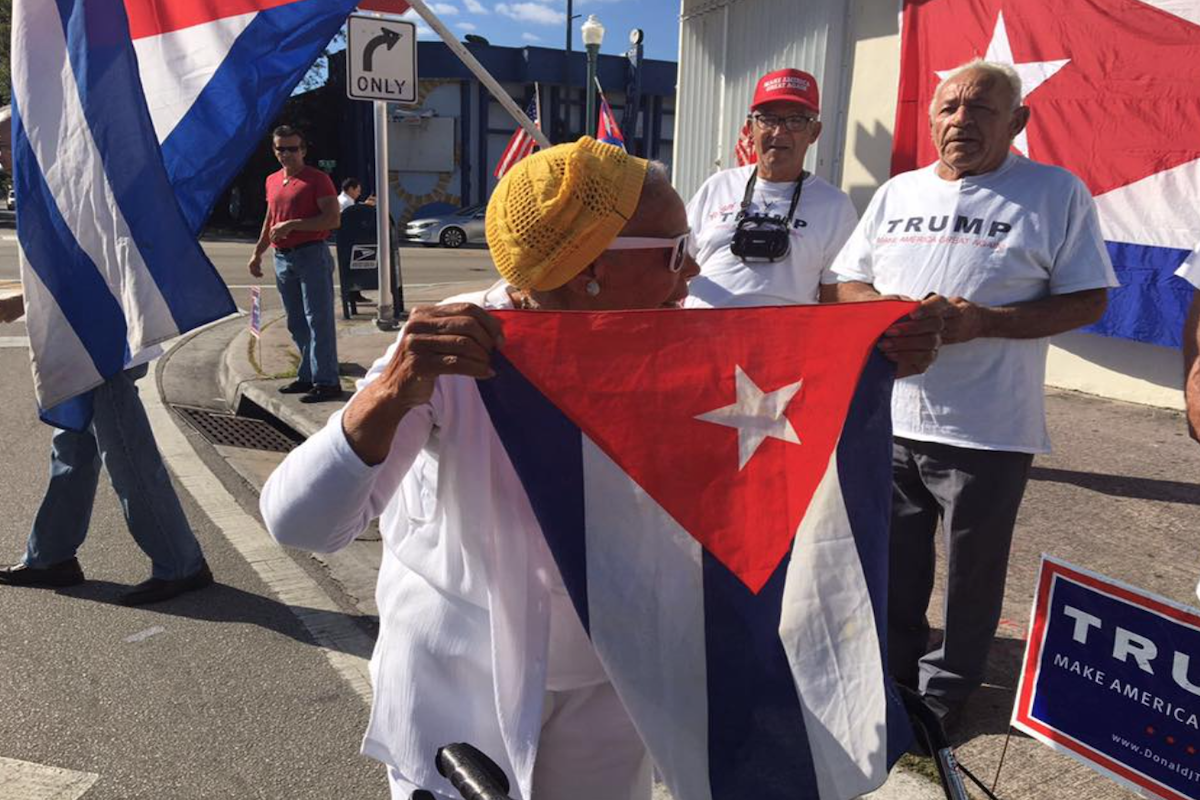

(Via VOA/Public Domain)
Complete with fist-pumping and grand gesticulations, my father chants, “USA! USA!” every time we’re on a plane as it lands. It’s both embarrassing and hilarious but I can’t blame him as a Cuban refugee who fled from abroad and was able to build a new life in America.
Under Fidel Castro’s dictatorship, my father’s family and thousands of Cubans had their livelihoods seized by a government that claimed to champion them. Previously successful business and homeowners, the government allowed them only one suitcase and four dollars when leaving the country in hopes of escaping oppression.
When Castro first gained support he did not identify as a communist. Castro claimed to be an “anti-establishment” man of the people. But in reality, he lived in luxurious residences and had an estimated net worth of $900 million while Cuban people sunk into extreme poverty. Many Cubans who believed Castro would bring democratic change in disrupting the status quo quickly realized he did not serve them the way he claimed to. Instead, he suppressed any and all opposition, threatened media outlets, used military forces to stop civilian demonstrations of opposition, and created a society in which he and his inner circle could play by different rules than the rest of the Cuban people.
Sound at least a bit familiar?
While I can understand the desire of many Cuban-Americans to hold on particularly tightly to what they have, or to an idea of abundance they could have (my father included, who orders daily Amazon packages like capitalism is going out of style), I’m puzzled at the continued support for Donald Trump.
In his first term as President of the United States, Trump has fired government and health officials who disagree with him or forced them to resign, intimidated dissenting news outlets and discredited opposition as “fake news.” He has sent federal law enforcement to Portland and threatened to do so in cities that were not even experiencing violence, has suggested he would rig an election and not accept a democratically elected transition of power, has evaded taxes and refused to disclose his returns, and hands opportunities and protections to his loyal elite while most Americans have spent 2020 in turmoil during a pandemic. How do an estimated 60% of Cuban-Americans who support Trump in this election not see any alarming similarities between Castro’s oppression and Trump’s self-serving, dictatorial expansion of power?
I also struggle to understand why Cuban-Americans who support Trump do not think the discrimination against “bad hombres,” as he called Mexican immigrants in 2016, will not apply to them. Once Trump and his base no longer need the Cuban-American vote, will they really differentiate us from other Spanish-speaking Latino immigrants they have shown extreme prejudice against?
I am proud of the Cuban-American people and how they have pushed to re-establish themselves in this country. In the final days before the election, however, I ask those who have not yet voted to take a critical look at Donald Trump’s actions and question the parallel dangers that they have worked so hard to leave behind.
***
Madeleine Dopico is a graduate student at the Columbia University School of Social Work, getting a master’s degree in Advanced Clinical Mental Health Practice. She is also a singer, songwriter, performer based in New York City with original music released on all major platforms. IG: @iamdopico.


